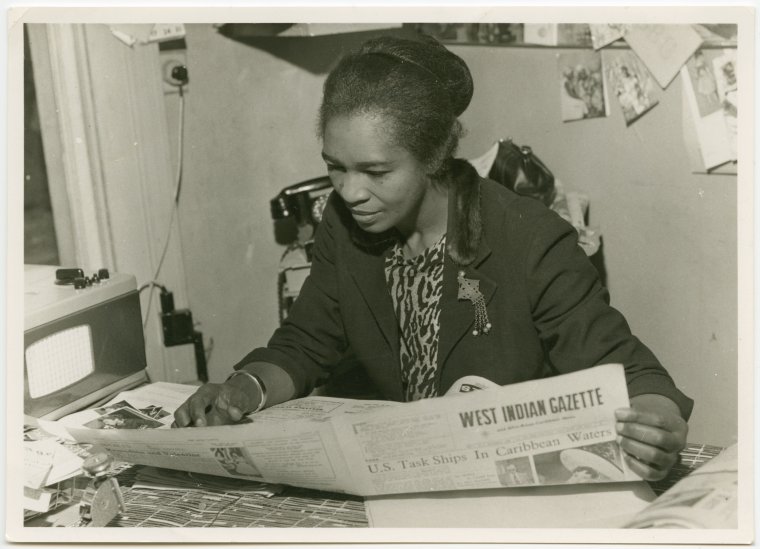A combination of factors — elections, funding scarcity and funder mandates, metrics for “impact” — has helped produce among scholars a burst of enthusiasm for public engagement. But in the last few years it may be that the urge to advocate and teach eclipses them all. Things that seemed obvious and of clear public benefit are newly vulnerable: science now needs a march on Washington.

But the very thing that required the March on Washington in 1963 still demands advocacy and teaching. In a compelling turn, and at a moment when older scholarly societies worry about membership declines and formulating new sustainability models, a new scholarly society exemplifies a fresh approach to the history and meaning of race in America. The African American Intellectual History Society began in early 2014 as a group blog, founded by Professor Christopher Cameron of the University of North Carolina, Charlotte. Cameron undertook this work to “provide a space for scholars in disparate fields to discuss the many aspects of teaching and researching black intellectual history.” The blog soon acquired an organization, which begat some familiar scholarly society structure including officers, bylaws, and a program for scholarly communication. AAIHS officers are mostly early career, but also have a depth of experience as scholars and writers. The society held its second annual conference this past weekend at Vanderbilt University.
What’s distinct from a lot of scholarly societies — certainly from most humanities scholarly societies, and most definitely from those legacy societies founded in the early twentieth century or before — is that the AAIHS’s own scholarly communications content is entirely online and in blog form (rather than in a traditional journal). In January 2017 the AAIHS blog relaunched under a new name, Black Perspectives. The blog is “the leading online platform for public scholarship on global black thought, history, and culture. As engaged scholars, we are deeply committed to producing and disseminating cutting-edge research that is accessible to the public and is oriented towards advancing the lives of people of African descent and humanity.” Daily content, from a roster of 40 regular contributors who commit to monthly posts plus guest authors, includes features such as scholarly reflections, roundtables, book reviews, and author interviews.
Black Perspectives is now getting over 10,000 unique visitors a day. Given the rate of growth these statistics are likely outdated by the time you read this post on Scholarly Kitchen. The AAIHS social media game overall is terrific. AAIHS boasts nearly 14,000 Twitter followers, and the new blog name has its own Twitter handle, @BlkPerspectives, with 4,000 followers in under four months. I didn’t ask about readership about particular posts, but I’m betting that there are some that get more traffic but that overall volume is steady.
A clear attribute of the blog is the consistently high quality content. In just this last week the blog had featured posts on “Black Masculinity in Comic Books,” “Slavery, New Orleans, and Counting Blues,” and “Social Death and Insurgent Discourses in Jordan Peele’s “Get Out.” A featured books section highlights works “in African American History and African Diaspora Studies.” The first 2017 forum, on the anniversary of Malcolm X’s assassination, offered a series of reflections on “Remembering Malcolm.” A stunning roundtable in March on Sowande Muskateem’s book Slavery at Sea included pieces on the relentless capitalism, grinding violence, archives and memory of Transatlantic slavery.
I asked Keisha Blain, Senior Blog Editor, about the success of the AAIHS and the blog in particular. “I would credit two factors,” Blain said, “passion and creativity. It’s one thing to talk about a commitment to using all forms of media to reach a general public; it’s another to be passionately committed to doing it….we make time for it and we’re always trying new approaches.” She also offered some insight into the importance of editorial review. She noted that an editing team, a regular review process of blog material by the leadership team, and a strict publishing schedule have all contributed to the blog’s ability to provide consistent depth and breadth of content that attracts readers. The connection of the Senior Blog Editor to the AAIHS Board echoes some of the form of older scholarly societies where Editors served with other Board members, but makes sense in that it keeps the goals and practices of the organization and the blog aligned. Blain also offered terrific advice for graduate students and early career researchers about the role of social media in their career. Social media is most powerful, she observes, “as a platform from which to engage in crucial dialogue about a range of issues and as means of building community.”
The community of readers for AAIHS is itself a fascinating question. The scholars of African American history who comprise its conference goers and membership are clearly eclipsed in number by the popularity of the blog—and this is by design. The outreach that Blain described is creating a community of engaged readers who might have come for the Malcolm X and stayed for the daily diet of wide-ranging scholarly writing.
Arguably a key moment in galvanizing attention for AAIHS – certainly for its combination of intellectual work and public outreach — was the creation of the Charleston Syllabus. Hashtag syllabi are generally recognized as originating with Marcia Chatelain, a professor in the history department at Georgetown University who started the #FergusonSyllabus campaign on Twitter as a way to generate resources for educators around issues of race and violence. Two nights after the racially motivated murder of 9 men and women at the Emanuel African Methodist Episcopal Church in Charleston in June, 2015, Professor Chad Williams of Brandeis University started the #CharlestonSyllabus. Reading about how this movement moved, one can’t help but be moved. Within an hour, the #CharlestonSyllabus was trending. Williams and AAIHS Secretary and Senior Blog Editor Keisha Blain, a professor at the University of Iowa, along with Professor Kidada Williams of Wayne State University, published a version of the #CharlestonSyllabus as a book, Charleston Syllabus: Readings on Race, Racism, and Racial Violence from the University of Georgia Press. Publishers Weekly called the book, “an offshoot of the original online syllabus (a blockbuster bibliographic tool that’s also included in this volume)…simply a must-read.”
What makes something a “must-read?” Well, in one’s own field of specialization you’ve got to keep up. But the ambition of the AAIHS and Black Perspectives – and the #CharlestonSyllabus — is different, and not because there isn’t deep field specialization here. The ambition here is to engage citizen thinkers around the most urgent issues of the past that live in our present. That’s work that scholarly societies for hundreds of years have reached toward, but rarely in such explicit and expansive terms.
Discussion
8 Thoughts on "A New Scholarly Society is Doing the Urgent Work of the Past"
AAISH provides a fantastic collection of posts. Also worth a look, and following a similar mailing list > blog > society is the Society for US Intellectual History at s-usih.org. Both groups have some crossover in memberships and often cover similar subject matter. Members in both groups often tweet using #USIH.
Thanks, Ethan, for mentioning USIH. I could have written a lot about the relationships among related groups and definitely USIH among them, especially as when Chris Cameron has written about the origins of AAIHS he mentions USIH. Not sure if you’ve seen it yet, but the AHA also has a piece up today for their April issue of Perspectives on group blogs mentioning AAIHS, Notches, Nursing Clio, and the Junto Blog. I think AAIHS is different from the others in that it’s a full organization too–but again, in that like s-USIH.
Is the Charleston Syllabus still a work in progress or? Because I find no mention of bell hooks’ body of work for example, nor Gilroy’s “Black Atlantic”, and so on. That’s a bit puzzling to me — those were all required readings when dealing with black identity and race/class issues back in uni.
So a question for the Black Perspectives crowd: from your POV, were we required to read the “wrong” stuff so to speak, or am I just misunderstanding the syllabus’ scope and intent?
Thanks for your comment. I can’t speak for the AAIHS or the Charleston Syllabus authors of course. Will just note that I find the book itself a great teaching resource. And the online version (http://www.aaihs.org/resources/charlestonsyllabus/) explains the origins and process of composition as well as notes that “this list is not meant to be exhaustive–you will find omissions.” From the Resources section of the AAIHS website you’ll see that the hashtag syllabus projects are meant to inspire responses and dialogue.
I read a lot of bell hooks and Gilroy, too, fwiw, in graduate school in the 90s.
Ah, thanks, didn’t catch that. Their omission just made me wonder if they may have become outdated or considered incorrect in some way over time.
You also didn’t catch that bell hooks is included on the list. If you click the link that says “Note: See the University of California’s Bibliography on Black Feminism and Womanism,” you’ll find references to several works by bell hooks. Ultimately, the list is very extensive and could not possibly include all the books you like. If you read the book or any of the articles about the syllabus, you’ll know that it was never meant to be exhaustive. In any case, thanks to the Scholarly Kitchen for an excellent article on AAIHS and Black Perspectives, one of my favorite academic blogs! Everyone should be reading it.


